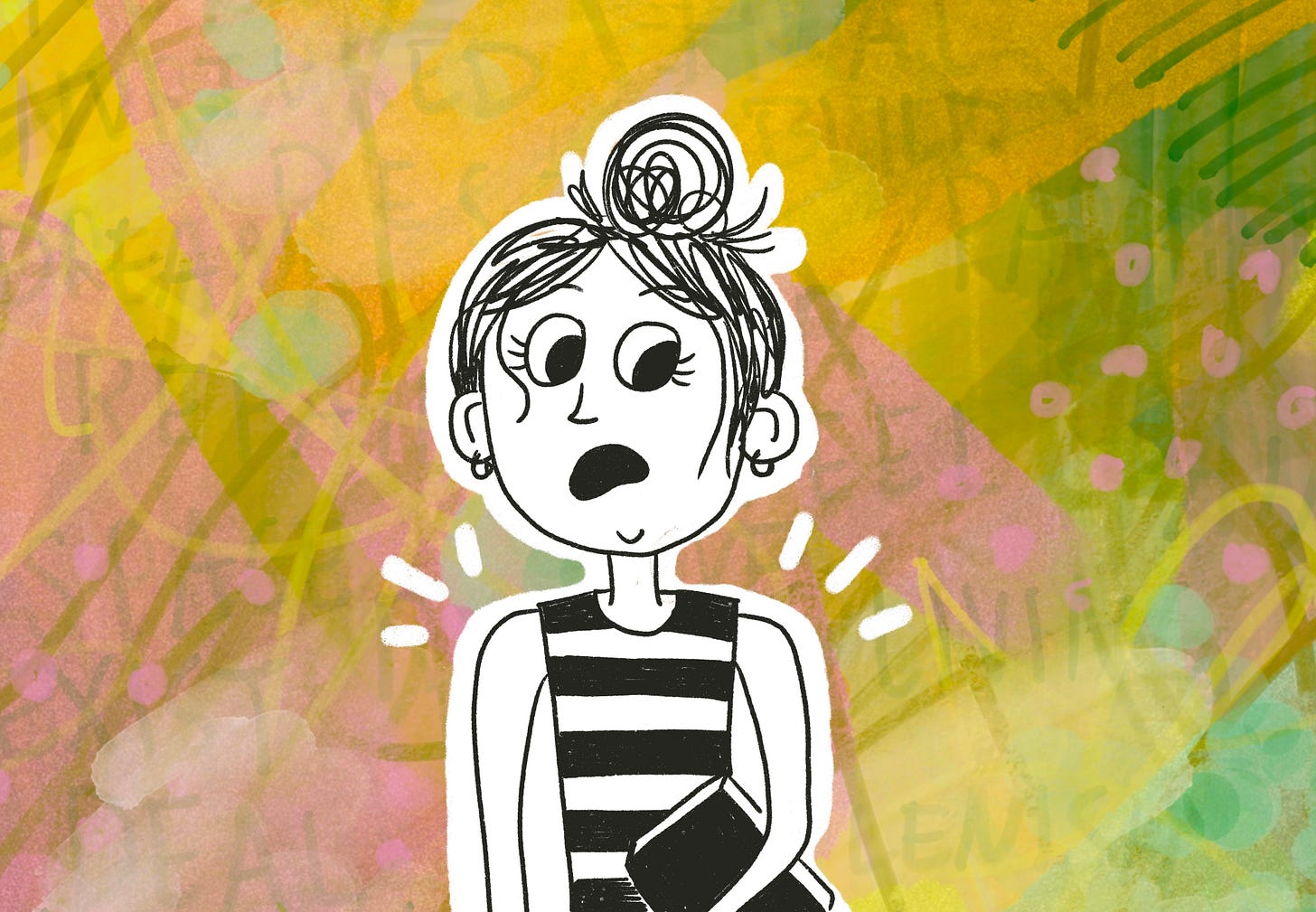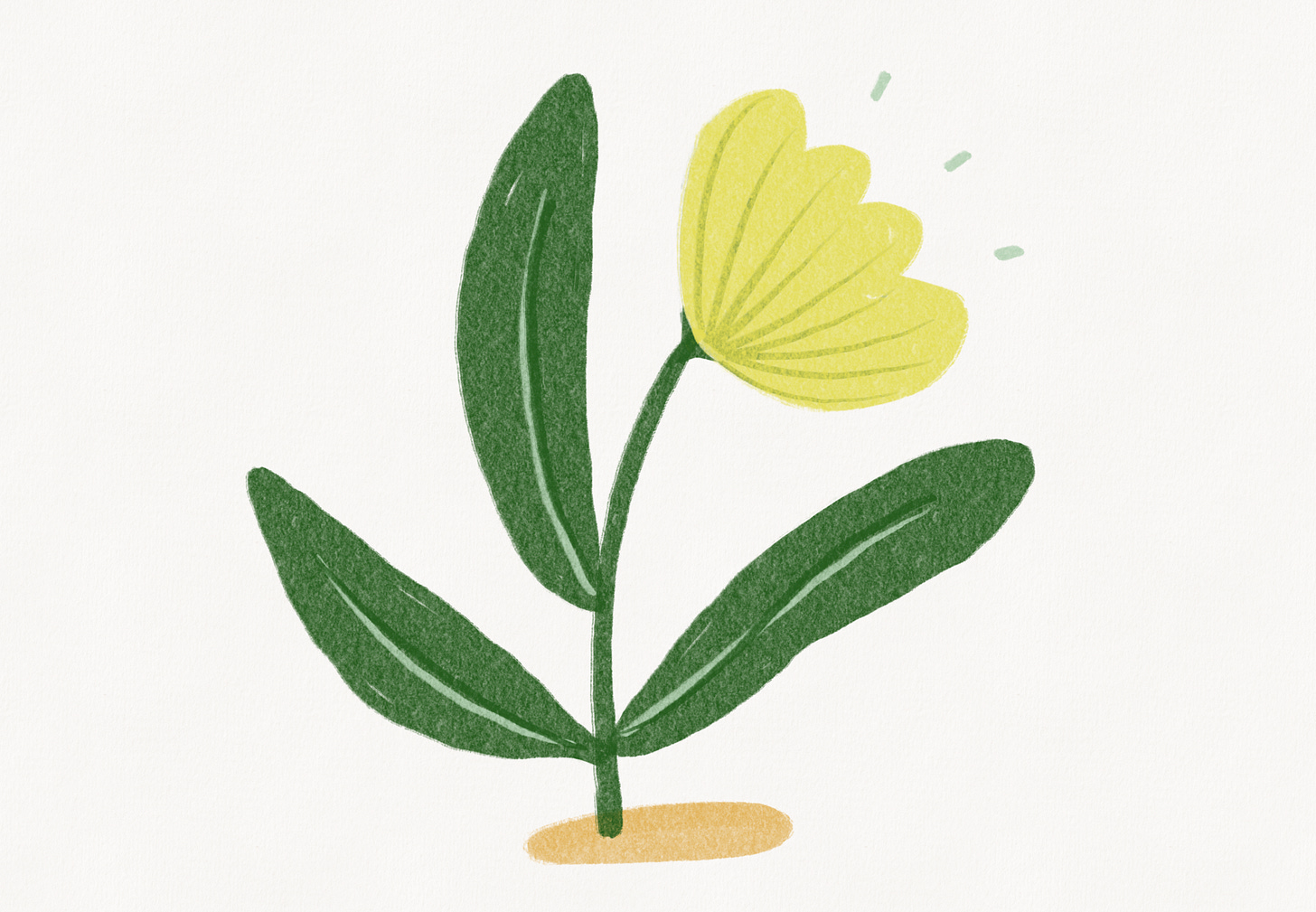When the unchangeable just... changes.
rebuilding ancient ruins & looking at generational trauma
Something for Sundays reflects my personal journey wrestling with Mormon faith and tradition and may challenge some beliefs. Today I am talking about temple worship, garments, and changes in that regard made by the Church institution. If you're not in the right space to read this, I understand, I do not fault you, and I am so grateful you subscribe anyway. :)
🎨 I have created a condensed, illustrated version of this essay. You can find that HERE and on my Instagram, @somethingforsundays_.
Just last week, changes were made to the temple garment so that people in “hot climates” will be able to wear sleeveless tops.

When this change happened, and when other changes have happened in the Church, I find myself having such conflicting feelings. On one hand, I am happy and excited that the Church appears to be moving forward — and on the other hand, I feel a sense of loss. A loss not just of time and energy, but of the shame and restriction I internalized. It’s like the sacrifices I made to adhere to the requirements were now unnecessary.
I don’t envy Church leadership; I actually have a lot of compassion for them. They are in a tricky place — when they don’t make changes, people are mad, and when they do make changes, people are mad.
But what’s behind that anger? What’s the “thing under the thing” as
says?Many Church-wide changes, especially when it comes to temple worship, often go without a formal announcement, explanation, or acknowledgement of pain. They seem to just… happen! And everyone seems to just… be expected to accept it!
For me, when changes happen, I find that I have heartache that I didn’t even know existed. I need space to grieve and to question and to grapple with the fact that, just like that, something that I have previously defended, sacrificed for, and accepted as “God’s will” could be amended.
When changes to the temple happened five years ago that allowed women to covenant directly with God instead of covenanting to their husbands, I cried.
I cried and I cried and I cried.
I didn’t cry out of joy or happiness that God had finally decided it was time that women were allowed to unveil their faces and speak to Him directly.
I didn’t cry out of gratitude that the leaders of the Church had finally received revelation that would put women at more equal (but not quite fully equal) footing with the men.
I cried because I realized so plainly that the things that had been didn’t need to be that way in the first place.
I cried because I had been doing mental gymnastics to try to justify my worth to myself when I didn’t actually have to.
I cried because I was the older brother in the prodigal son story, gritting my teeth and enduring, wanting acknowledgment and getting no celebration.
I cried because I spoke with a woman who told me with tears in her eyes, “I wish my mother and grandmother could have been alive for this.”
My sadness felt bigger than me and my singular experience, as if there were cries inside of me that were not my own. I had only been endowed in the temple for four years at that point — but the women before me, and the women before them, were constantly participating in rituals that implicitly devalued their worth before God (whether or not that was the intention by the majority-male leadership).
When that change happened in 2019, I saw many women around me celebrating. I wanted to celebrate, too. I really did! But I couldn’t make the jump that quickly.
Could we — I don’t know — light a candle, plant a tree, burn a letter, have a parade… something to acknowledge and honor the gravity of change?
I remember thinking, if it could be changed now, then why wasn’t it changed before? Why did I, at 19, need to covenant to obey my husband (that I didn’t even have at the time) with my face, beet-red and burning, covered by a veil? Even all these years later, I can feel the weight of that. I remember having one emotion during that experience: shame.
Now, 19 year old girls who go through the temple ceremony will say, “I’ve never felt that way. I’ve never felt shame in temple worship.”
And that may be true for them.
In a few generations, will it just become a rumor that my lived experience ever happened?
When I was beginning to disentangle Jesus from, well, everything else, I felt so overwhelmed by it all that I just wanted to give up.
“I’ll just let my kids figure it out,” I said to myself more than once.
My disentanglement was about more than just not drinking coffee or wearing shorts that went to my knees. It was about meeting annually with leaders to discuss my worthiness — signed off by a slip of paper, recorded in the Church system. It was unofficially regarding the Handbook as scripture. It was pledging my loyalty to a Prophet. It was turning over my conscience, again and again, to an institution, and filtering my opinions and judgments through the lens of the LDS faith.
So, when I decided to dip my toe into uncertainty and mystery, it felt like a big wide vast wilderness. The options were endless, the opinions were endless, the mystery was endless. Suddenly, my certainty that had worked so well for me before felt insignificant in the vast mystical, interconnected humming of is is is.
Out in the wilderness, I had no choice but to try to turn inward and access the power inside of me.
Without even knowing it, by regarding my inner authority as valid and sacred, I was consistently tuning in to the voice of God.
I didn’t realize that angels in heavens would cheer when I learned to make a choice on my own.
“Look at her!!!” I can feel them sing, “Look at her go!!!”
I’ve come to understand that trusting in my own spiritual power, my own goodness and wholeness and inherent worth, heals not only me, but women who came before me, and women who will come after.
I listened to a podcast this week where the host interviewed a therapist who specializes in religious trauma. She talked about how trauma is passed on through DNA, and by doing inner work we are actually healing generations who came before us and generations who come after us.
The Latter-day Saint story has layers of trauma. I think about my great-great-great-grandmother, who walked across the plains by foot to come to Utah only to be immediately assigned to be the fourth-wife of someone who clearly said he did not want another wife. What wounds, fears, loneliness, longing of hers exists in my DNA? What seeds did she plant back then — what dreams, desires, goals did she have — that were not in the right soil to grow?
In Isaiah 58 it says:
“The Lord will guide you continually, and satisfy your soul in drought, and make your bones strong, and you will be like a watered garden… and your ancient ruins shall be rebuilt, and you shall raise up the foundations of many generations; you shall be called the repairer of the breach, the restorer of streets to dwell in.”
Isn’t that scripture beautiful?* As an English teacher, I love the words used here: guide, satisfy, rebuild, raise up, repair, restore.
I love the idea of God turning the dry wilderness of my soul into a watered garden — lush, vibrant, fruitful. I love the promise that “your ancient ruins shall be rebuilt” and that you will “raise up the foundations of many generations.”
Those ancient ruins, those foundations are what I interpret as our True Self in God: the soul’s blueprint, the true essence of who we are. First and foremost, we belong to God — we always have. And we will be rebuilt as we are nourished by Love and Life itself.
I can just feel it inside of me — when God waters our parched soul, that living water replenishes, rebuilds, raises, repairs, restores generations before us. And by changing how we show up, how we value ourselves, and how we dare to take up space, we can give the gift of a strong foundation for the generations to come.
It’s okay to make space for the grief and pain that may accompany sudden changes. When you do, you also make space for growth.
Happy Sunday, friends :)
*Side Note: Why did the Church always make me feel so intimidated of Isaiah?!! It’s PURE POETRY.
I want to hear from you —
How do you honor change in your life? What are your thoughts about institutional changes — are you able to jump from one status quo to the other easily? Or do you find yourself needing time to process it all?
Check out Something for Sundays on Instagram for illustrated spiritual musings 🌱
Your willingness to “like”, comment, and share my newsletter is the best way you can support my work! <3 Thank you so much for being here and encouraging my writing.













SO beautifully expressed! I love the thoughts that you so carefully described about changes in the church. I always gradually find peace as I ponder new ways of doing things. And the changes are always for the better, in my mind. Thank you so much for your post, Kimber! ❤️
I remember keeping my eyes open in the temple as an act of rebellion, thinking "they can veil me, but I won't close my eyes, I won't be hidden." That change hit hard and made me angry that I wasted so many years with a barrier between me and God that never needed to be there in the first place.